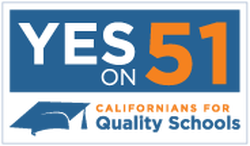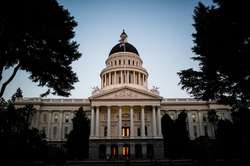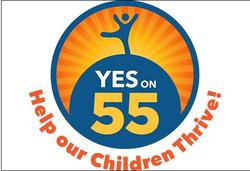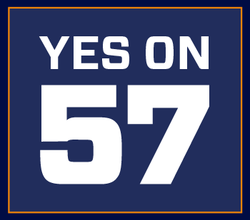If you do hold an IMPACT Sunday or distribute our recommendations, please be sure to let us know about it! For more information, please contact us.
| impactsundays.pdf |
| impactnov16ballotguide.pdf |
|
Many congregations throughout California host IMPACT Sundays at their congregation, place of worship, or homes and other locations. Attached is a flyer with suggestions on how some congregations do this, but you are welcome to use your creativity! If you need copies of our ballot guide, you can download them here (we hope to have a short version posted in early October) or contact us. We can send you copies but do ask for help covering the cost of printing and postage. If you do hold an IMPACT Sunday or distribute our recommendations, please be sure to let us know about it! For more information, please contact us.
0 Comments
You can download IMPACT's complete November 2016 Ballot Guide here.
 This $3 Billion bond will rectify our long-standing neglect of the critical infrastructure housing our school children. Children attending school in substandard buildings do 6-11% less well than children in excellent school facilities. Just under half (42%) of the state’s school districts have at least one building in disrepair, and one-third have lead paint, while others have mold, allergens, toxic chemicals, rats and roaches. Students of color and those in poverty bear the largest burden of trying to be educated in horrid conditions. Funds will be invested in cleaning, renovating and building adequate educational facilities, all long overdue. The state Legislature has routinely raised and maintained this fee, paid by private hospitals within the state, to be in compliance with federal regulations that qualify CA for Medi-Cal funding. This fee provides a net benefit to the hospital industry, public and private, by gaining more from Medi-Cal federal support ($3.5 billion 2015-16) than the fee costs. This measure will require a 2/3 vote of the Legislature to create a fee cancellation or reduction. Medi-Cal expansion under the Affordable Care Act has generated enormous benefits to the homeless and families and children in poverty. Preserving the fee is a positive step in preserving the health of our population.
PROPOSTITION 53 Revenue Bonds. Statewide Voter Approval. Initiative Constitutional Amendment. NO9/15/2016  This proposition would require a statewide vote on all obligation bond sales over $2 billion even if the work covered by the bond is geographically isolated from most voters. While it does not impact local projects using local revenue, there is no specific exemption for essential goods or for even emergencies. The Proposition if passed could impact emergency funding (earthquakes, major fires) as well as locally needed infrastructure repairs, expansion, etc. to handle water crises and drought preparedness. The Legislative Analyst notes that state-funded hospital construction in San Diego could be vetoed by voters in Eureka. Prop. 53 does much harm and not much good.  This Proposition requires a few simple acts. Every bill must be posted publicly for 72 hours before it may pass out of either house. This prevents last-minute changes (“gut and amend”) by special interests that have no review. All public meetings of the Legislature must be videotaped and the videos posted online in a timely manner. This means that the Legislators’ comments and those of the public are no longer confined to the hearing room but are open to all. Third, ordinary citizens will have the right to record public hearings and share that information with anyone they choose. These three measures will have a profound benefit in ending last minute secret deals and giving citizens greater transparency within the legislative process.  This proposition would extend for another 12 years (2018-2030) part of the tax increase voters approved in 2012. It would impact those earning over $250,000 for individuals, $500,000 for joint filers. This would raise, based on stock market fluctuations, between $4-9 billion annually. The sales tax raised in 2012 will expire in 2018 and not be renewed by this measure. Half the revenue will go to schools with 89% to K-12, 11% to community colleges, to be spend entirely on education not administration and allocated locally by school boards subject to audit. Health spending for low-income people will be $0 to $2 billion annually with the Governor’s office determining Medi-Cal resources vs spending necessities. Between $0 and $1.5 billion will be directed to the reserve and debt payments based on Proposition 2 mandates from 2014. This proposition will do a great deal to prevent the fiscal meltdown of the pre-Proposition 30 that resulted in teacher staff reductions, overcrowded classrooms and longer college waits for completion, and cutbacks in health care services. It is a responsible progressive tax to keep the state both functioning and solvent.  If passed this proposition will raise the excise tax – the tax levied on wholesalers – by $2.00 for tobacco products in addition to existing excise taxes, and will inaugurate similar excise taxes for e-cigarettes. On all three categories the final excise tax will be $3.37 per item. Because of the price increase of the retail item, it will also raise sales taxes based on higher cost. Increased revenue will provide $1-$1.4 billion but potentially less over time with a reduction in tobacco and possibly e-cigarette use. The distribution of funds will be in part to replace funds lost by smoking and nicotine product reduction such as First Five childhood programs, then to state and local health programs including Medi-Cal, Public Health, etc. with other revenues to physician training to increase the numbers of primary care and emergency room physicians. Some revenue will go to the state Tobacco Control program to reduce smoking and also to school programs also designed to end use of tobacco by young people. Some funds (5% after revenue replacement is distributed) will be directed to administration of the tax and $48 million to agencies enforcing tobacco-related laws. This excise tax places some of the costs of care on those who use tobacco and other products to offset the costs of tobacco-related diseases and impacts of users. Higher “sin taxes’ have always been a useful strategy for reducing addictive practices but do have the consequence of also limiting long-term income to the state and agencies supported by the revenues. However, the benefits in overall improved health offset the inherent flaw of income reduction in both diminished health costs and improvement in human well being.  This proposition requires all determinations concerning the status of juveniles being tried as adults to be left to judges and not prosecutors. District Attorneys may petition, but judges alone will determine the juvenile/adult status especially for youth as young as age 14. It encourages education and rehabilitation as priorities for non-violent offenders, and it allows early release for non-violent offenders upon completion of the full time for the base charge with possible exemption from additional time on additional lesser charges. It keeps most dangerous offenders incarcerated. This proposition extends restorative justice work begun with SB 9, the abolition of Life Without Parole for juvenile offenders and the reduction in unjust abuses of the “Three Strikes” life sentencing as well as sentence changes from felonies to misdemeanors for non-violent, non-serious crimes we passed in Proposition 47. This is an essential step in moving from fear based incarceration to rational criminal justice, especially for our youth. This proposition comes from SB 1174 (De Leon) that opens up local decisions about how non-English speaking children will be taught the English language. It repeals the restrictive portion of Proposition 227 (1998) that requires immigrant children to be in English-only classes in all subjects. Since 1.4 million children are English learners, but only 5 percent of schools use the 5-6 year bilingual programs, non-English speaking children have faced serious barriers to overall educational success. Proposition 58 leaves the determination of English-only, bi-lingual education, or a mix of the two up to schools. The schools are also directed to engage with parents on what options exist and to obtain feedback from families on their children’s success. There is virtually no fiscal impact to this change.
|
AuthorThe Rev Dr Rick Schlosser Archives
January 2024
Categories
All
|
||||||||||||||||||
|
|
Website by L2Designery
|
